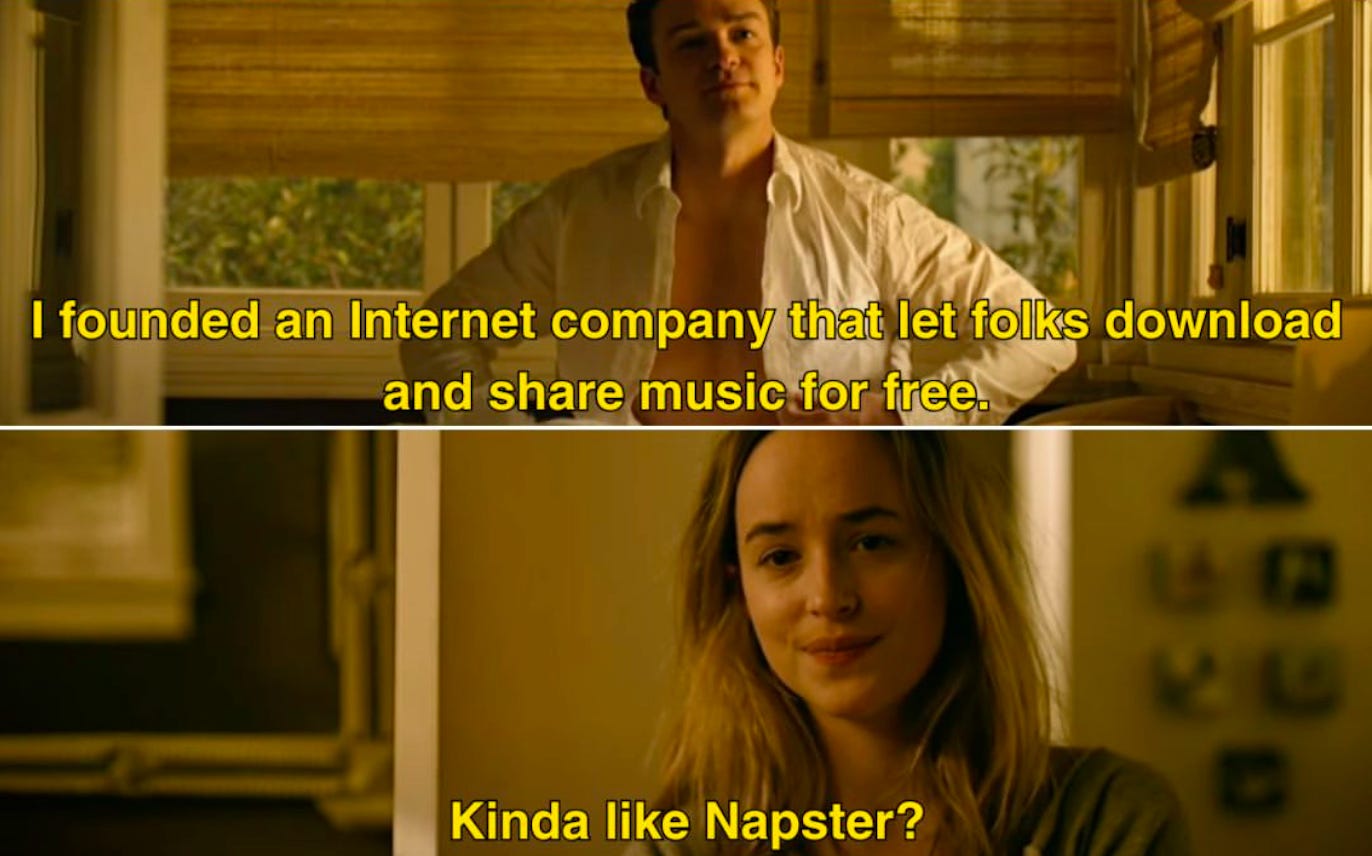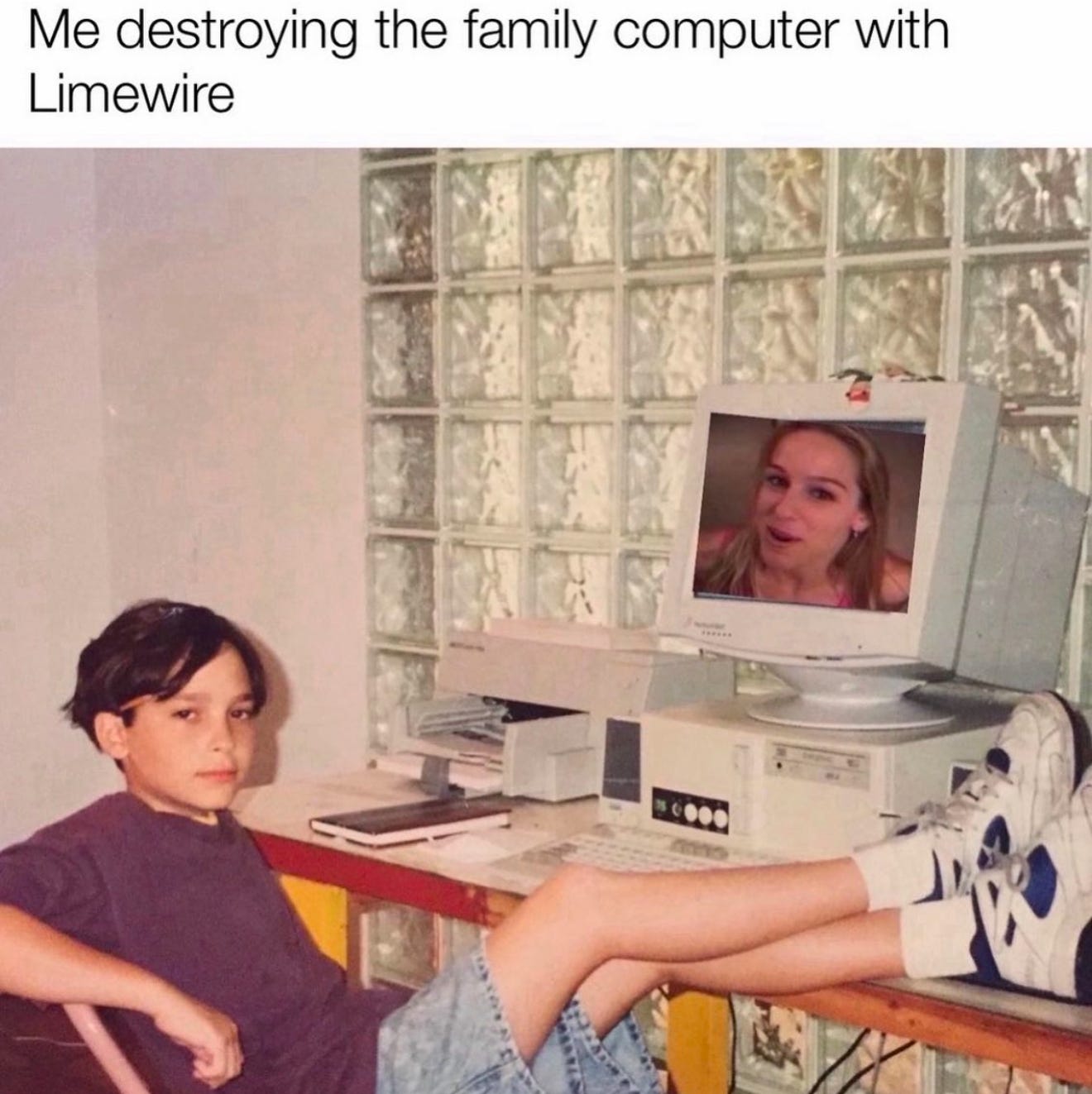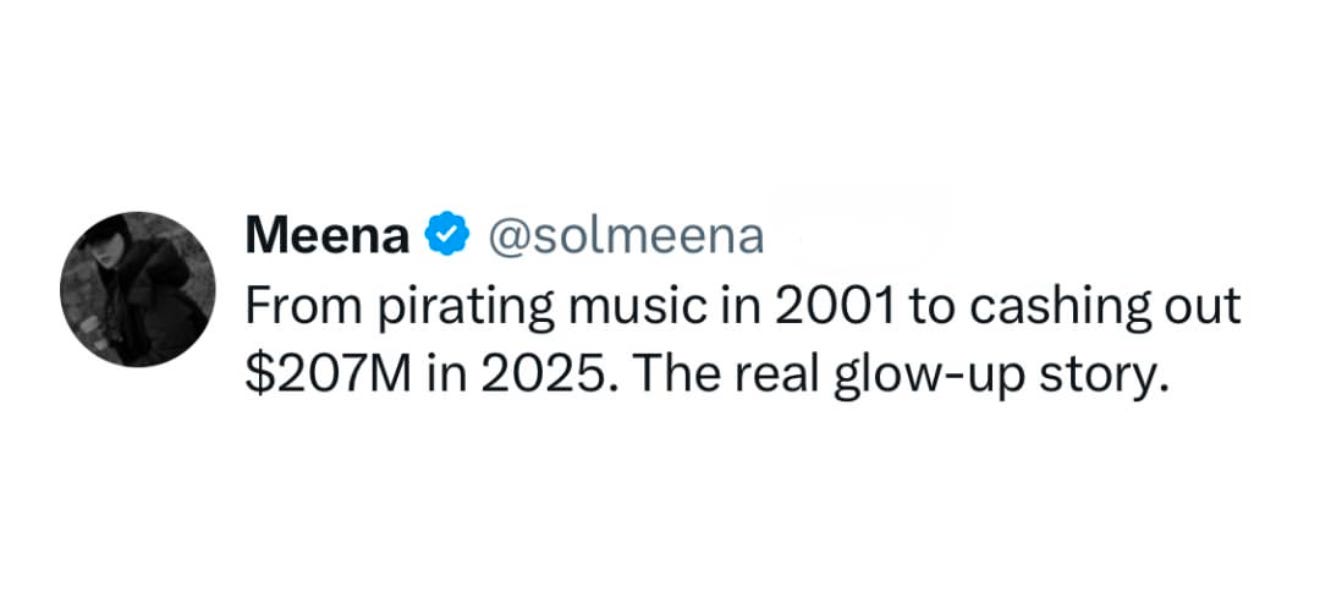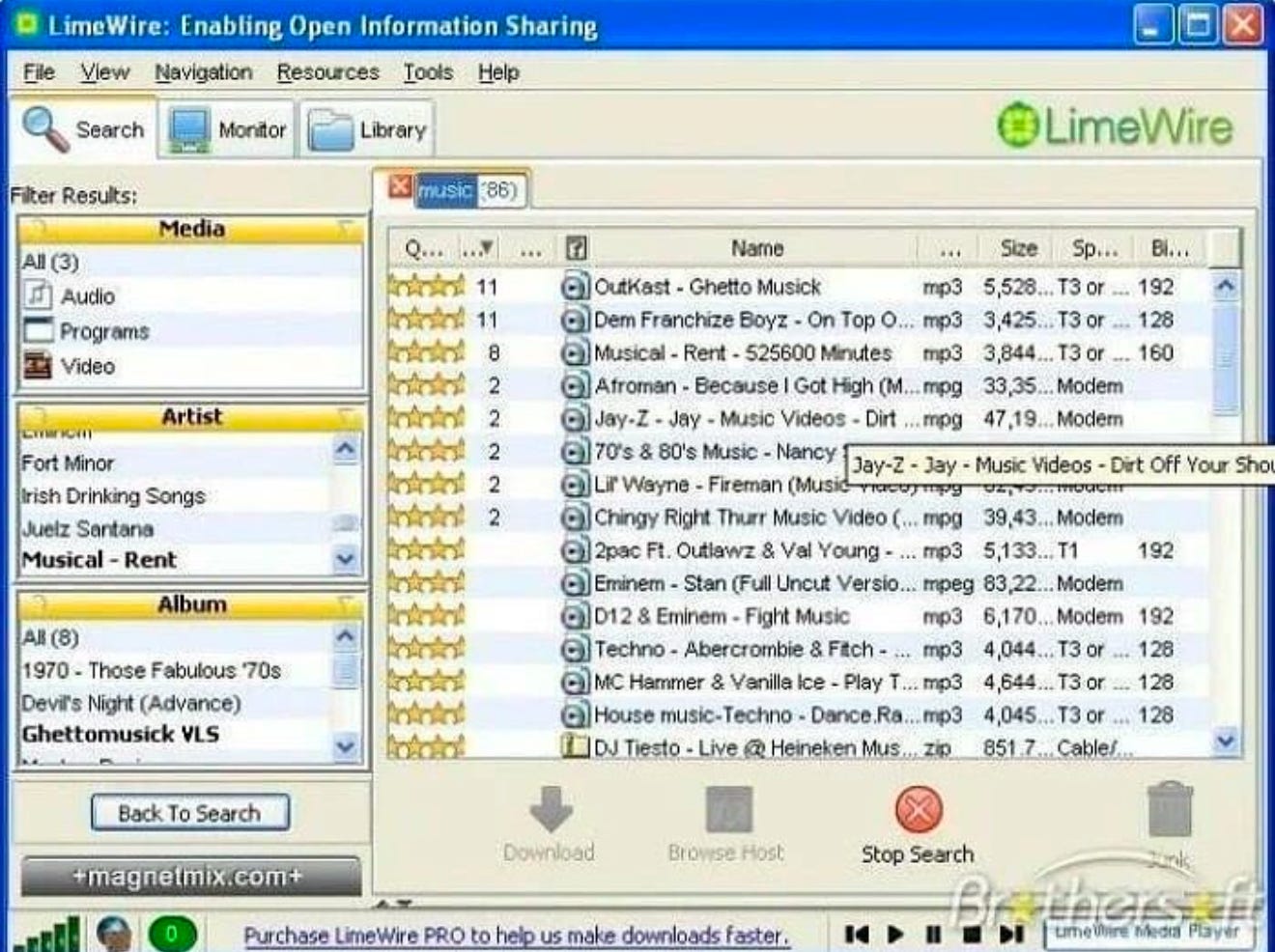'Napster' just got acquired for $270 mil. This matters, let me tell you why
I guess it's time to start listening to music like it's 1999.
If you were a teenager in the early 2000s or just a huge fan of the movie The Social Network, chances are you’ve heard of Napster. Before Spotify, before Apple Music, and way before TikTok dictated the next viral song, Napster was the way to get music. And as of yesterday, it's back—kind of. But this time, it's not here to disrupt the industry. It's here to reimagine it.
Napster has just been acquired by Infinite Reality (a company specializing in AI and XR technologies) for $207 million (!!!), and it’s about to undergo yet another reinvention—this time, as a social music platform in the metaverse. This isn’t just a nostalgia play; it’s a major sign of where the music industry is headed next. With the rise of AI-generated songs, declining streaming revenue for artists, and fans craving more immersive experiences, Napster’s new iteration could shake up the way we interact with music yet again.
A Quick History Lesson: What Was Napster?
Back in 1999, two college students, Shawn Fanning and Sean Parker (AKA Justin Timberlake), created Napster, a peer-to-peer file-sharing service that allowed users to swap MP3 files for free. At the time, it was revolutionary. Suddenly, anyone with an internet connection could access a massive, decentralized library of music without paying a dime. For music lovers, it was a dream. For the music industry, it was a nightmare.
Napster blew up fast, hitting over 80 million users at its peak. But with that success came major drama. Big-name artists like Metallica and Dr. Dre, along with record labels, went after the platform, arguing it was wrecking the music industry by making piracy too easy. After a messy legal battle, Napster was shut down in 2001. But its influence never truly went away. It completely changed how we think about music, shifting us from buying CDs to expecting instant digital access. The whole idea of paying for a subscription instead of owning songs? That started with Napster. It’s the reason we have platforms like Spotify and Apple Music today.
Why Should You Care?
If you're a millennial or a Gen Z-er (or somewhere in between like me), you've probably watched the music industry morph in real time. CDs turned into downloads (TBT to Limewire), which turned into streaming. But what's missing in all of this? Community.
Music used to feel like a shared experience. You’d burn mix CDs for your best friend, or spend hours crafting the perfect iTunes playlist to send to a crush after forcing your parents to buy you iTunes gift cards. Even in Napster’s prime, part of the appeal wasn’t just downloading music—it was discovering it alongside other people, talking about it, sharing files, and feeling like you were part of something bigger than yourself.
Today, we get algorithmic recommendations, but that human connection to music has largely disappeared. Infinite Reality is betting that bringing Napster into the metaverse can change that. They’re planning virtual concerts, digital music spaces, and ways for fans to interact with artists beyond just liking their posts. If done right, this could bring back some of that lost magic in a way that makes sense for 2025.
Napster’s impact also extends beyond just how we consume music: it transformed the way artists think about distribution and revenue. Before Napster, record labels controlled nearly every aspect of music sales; but after Napster, artists started exploring alternative revenue streams, from merchandise to direct fan interactions. Sites like Bandcamp and Patreon let artists offer exclusive content, special merch, and even live performances in exchange for support from their audience .
This idea of monetizing through fans has taken off big time. These new platforms are changing the game, with some artists making up to 4,000% more than they would on traditional streaming services. Fans get to support their favorites while getting access to exclusive content, demos, and different versions of songs they can’t find anywhere else. It’s a win-win. If you’re interested in this topic, I suggest checking out this Rolling Stone article for more details.
What’s Next?
The details of Napster’s comeback are still unfolding, but this could be a huge moment for music and digital culture. We're living in a time when AI-generated music is on the rise, streaming royalties are being questioned, and artists are searching for fresh ways to connect with fans in a meaningful (and profitable) way. Napster’s rebrand might be a sneak peek into the future of how we experience music, beyond just hitting play.









Exciting times ahead 🤗